Departmental news
National livestock movement bans may prove economically damaging
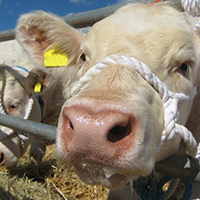 New research led by Dr Mike Tildesley has pioneered an economic perspective on controlling livestock diseases. Focusing on Foot and Mouth Disease (FMD), bovine TB (bTB) and bluetongue virus (BTV), the researchers draw striking conclusions about the role of movement bans in controlling an outbreak.
New research led by Dr Mike Tildesley has pioneered an economic perspective on controlling livestock diseases. Focusing on Foot and Mouth Disease (FMD), bovine TB (bTB) and bluetongue virus (BTV), the researchers draw striking conclusions about the role of movement bans in controlling an outbreak.
New awards target breakthrough technologies to enhance food security
A recent collaboration between the BBSRC, the National Science Foundation (NSF) and the US Department of Agriculture's National Institute of Food and Agriculture (NIFA) is helping researchers potentially advance technology that brings more security to crop agriculture of the future. Dr Stephen Jackson and Dr Jose Gutierrez-Marcos are amongst those receiving funding.
Warwick Ranked in UK Top 10 and World Top 100 by QS
The University of Warwick has been named as one of the UK’s top ten, and one of the world’s top 100, universities by the QS World University Rankings.
Bacteria such as E. coli detected in minutes by new technology
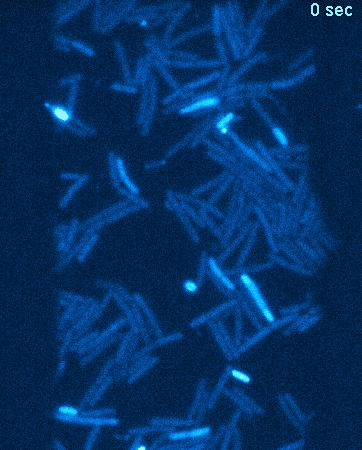 Dr Munehiro Asally, Dr James Stratford and colleagues, showed that bioelectrical signals from bacteria can be used to rapidly determine if they are alive or dead.
Dr Munehiro Asally, Dr James Stratford and colleagues, showed that bioelectrical signals from bacteria can be used to rapidly determine if they are alive or dead.
The findings offer a new technology which detects live bacteria in minutes instead of waiting for lab-test results which can take days.
When 'zapped' with an electrical field, live bacteria absorb dye molecules, causing the cells to light up and allowing them to be counted easily.
This rapid technique can detect antibiotic-resistant bacteria.
Beer and fodder crop has been deteriorating for 6000 years
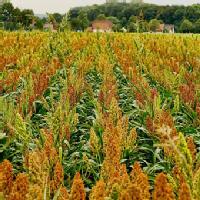 The diversity of the crop Sorghum, a cereal used to make alcoholic drinks, has been decreasing over time due to agricultural practice. To maintain the diversity of the crop and keep it growing farmers will need to revise how they manage it. According to Professor Allaby and colleagues, different groups of sorghums have ‘rescued’ each other from damage, giving insight into how such crops could be rescued in the future.
The diversity of the crop Sorghum, a cereal used to make alcoholic drinks, has been decreasing over time due to agricultural practice. To maintain the diversity of the crop and keep it growing farmers will need to revise how they manage it. According to Professor Allaby and colleagues, different groups of sorghums have ‘rescued’ each other from damage, giving insight into how such crops could be rescued in the future.
The milkweed bug’s orange wings and DNA: how insects’ diets are revealed by the genome
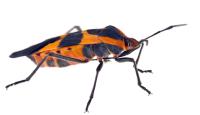 An international collaboration of researchers, including Dr Kristen Panfilio from the School of Life Sciences, have sequenced the genome of the milkweed bug, enabling scientists to understand at the molecular level what makes the bug, from its colourful development to its toxic diet.
An international collaboration of researchers, including Dr Kristen Panfilio from the School of Life Sciences, have sequenced the genome of the milkweed bug, enabling scientists to understand at the molecular level what makes the bug, from its colourful development to its toxic diet.
Salmonella could be combated by enhancing body’s natural process
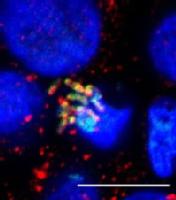 Autophagy – the process of recycling cellular material in the body, can help combat Salmonella and other pathogens according to Dr Ioannis Nezis and colleagues who have studied how autophagy can get rid of bacteria, and prevent diseases developing.
Autophagy – the process of recycling cellular material in the body, can help combat Salmonella and other pathogens according to Dr Ioannis Nezis and colleagues who have studied how autophagy can get rid of bacteria, and prevent diseases developing.
Man’s impact on flax evolution more limited than thought
 Flax naturally adapted to new environments rather than by human influence due to a set of genes that enable it to change its architecture according to research led by Professor Robin Allaby.
Flax naturally adapted to new environments rather than by human influence due to a set of genes that enable it to change its architecture according to research led by Professor Robin Allaby.
The evolution of Maize is more complex than thought
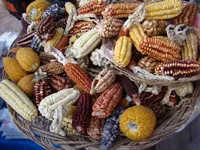 New evidence reveals that the evolution of Maize in South America is more complex than initially thought, and there was a further geographical area in which partial domestication occurred in the Southwest Amazon - according to an international collaboration of researchers including the University of Warwick, and published in the journal Science.
New evidence reveals that the evolution of Maize in South America is more complex than initially thought, and there was a further geographical area in which partial domestication occurred in the Southwest Amazon - according to an international collaboration of researchers including the University of Warwick, and published in the journal Science.
Crops can be grown in Arsenic contaminated soil without being poisonous
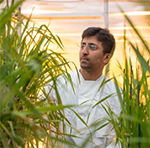 Researchers in Life Sciences are working on ways to contribute to developing safe crops which can be grown in As contaminated soil but reduce the amount of As going to the edible part.
Researchers in Life Sciences are working on ways to contribute to developing safe crops which can be grown in As contaminated soil but reduce the amount of As going to the edible part.
